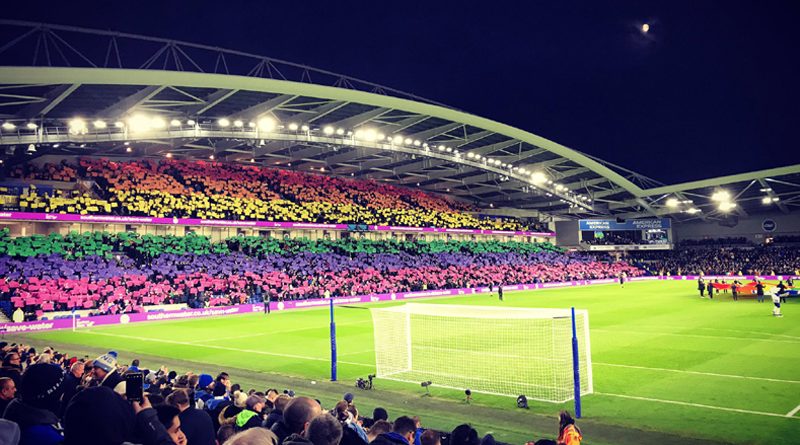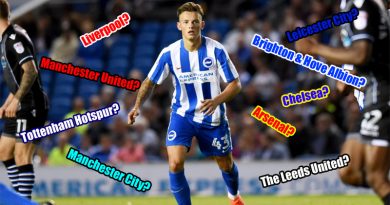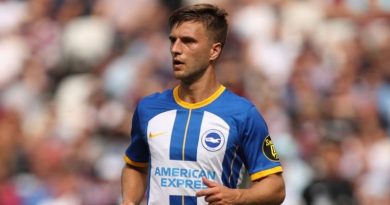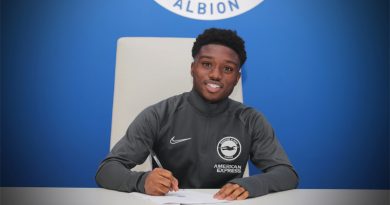The Saudi Pro Sportswashing League and its impact on Brighton
Gone are the days when off the pitch issues which occupied the Premier League, UEFA and FIFA were of little concern to the Albion.
Little old Brighton are now – and hopefully for the foreseeable future – a club in the top 10 of the world’s biggest league, playing in Europe and involved in the transfer market at the highest levels.
As often noted in these columns, Brighton stand out both as being owned by a fan rather than American or Arabian peninsula interests and as a club inextricably linked to the people and values of its home city.
Pride takes place this weekend in Brighton & Hove. At the same time, the Albion return to the Amex after a successful tour of the United States for a friendly against Rayo Vallecano.
It is timely these two events are happening in unison, given that what is going on elsewhere in football at the moment has thrown the intersection between the sport and human rights into sharp relief once again following last year’s World Cup in Qatar.
The departure of Liverpool captain Jordan Henderson to Al Ettifaq follows a series of moves by Champions League players to Saudi league clubs in the wake of big changes there two months ago.
Having already bought Newcastle United in 2023, the Saudi state Public Investment Fund under Crown Prince Muhammed bin Salman has taken over the four biggest teams in the Saudi Pro League: Al Nassr, Al Hilal, Al Ittihad, and Al Ahli.
This immediately gave them the purchasing power to raid top European clubs for players like Cristiano Ronaldo, Karim Benzema, N’golo Kante, Reuben Neves and now Fabinho, as well as managers like Nuno Espirito Santo.
The recent attempt by Al Hillal to sign Kylian Mbappe for a world record £257 million shows that money is no object and whilst salaries are comparable to Big Six pay cheques in the Premier League, players like Henderson will not pay any tax on their Saudi earnings as they do in the United Kingdom.
Henderson has been branded a hypocrite for apparently abandoning his commitment to the Premier League’s Rainbow Laces campaign by signing for a club that conspicuously switched his Pride flag captains armband to black and white in all social media publicity.
Being gay in Saudi Arabia is of course illegal and punishable by flogging or being put to death. Henderson is happily having his bank account filled by the same people who make the rules which can lead to the execution of the community he professed to support.
The position of the Saudi state on gay rights conflicts with the stated values of both our club and the Premier League. I say stated, because with Abu Dhabi-owned Manchester City and Newcastle under Saudi control, it is an issue that cannot and should not be lost in the sportswash.
But even if those issues are not of primary importance to you, the implications for the game itself are potentially huge. So how does this injection of almost limitless cash impact the Albion?
For now, Saudi Arabia seem intent on taking well-established players from the European Super League clubs, players with big reputations who are often towards the ends of their careers and looking for one final payday.
As yet, they do not seem to be challenging the US-owned English clubs for emerging stars like Moises Caicedo. Attempts to sign Mbappe broke the mould slightly; he is one of the only world class players in the prime of his career the Saudis have gone after.
But that of course could all change. And it is not just players who are at risk of being poached; Fulham boss Marco Silva turned down a big-money move recently.
Who is to say in future we will not see a Saudi club “doing a Chelsea” to Brighton and repeating the pillaging which saw Graham Potter, Paul Winstanley and our coaching staff all move to Stamford Bridge? Saudi Arabian cash has already tempted Dan Ashworth to leave the Albion for Newcastle.
Does all this mean teams like Liverpool and Manchester United have more rivals for new signings or a challenge to their positions at the top of the football food chain? Does it level the playing field slightly for us or is it a threat to our potential long-term status?
Is it a good thing that another league might potentially rival the Premier League? Or could we be on a slippery slope to some sort of global super league where only an incredibly wealthy elite tier of clubs prosper? Or is it no different to the US league, where Lionel Messi now plays for Inter Miami?
Nobody really knows the answers yet. All we can do is support the Albion in its ongoing success. The club itself can use the voice it has via Paul Barber in the Premier League, on the FA Council and in the Professional Game Board to speak up for “non-elite clubs”, our progressive values and the value of strong domestic league pyramids.
We know what life is like a long way down from the pyramidion we now occupy, having spent years fighting to survive in the lower leagues before Tony Bloom came along.
Fan-owned, rooted in its community, resolute in its values, Brighton and Hove Albion can be the template for how to do things right. Let us take pride in our club.
Warren Morgan @WarrenBHAFC




